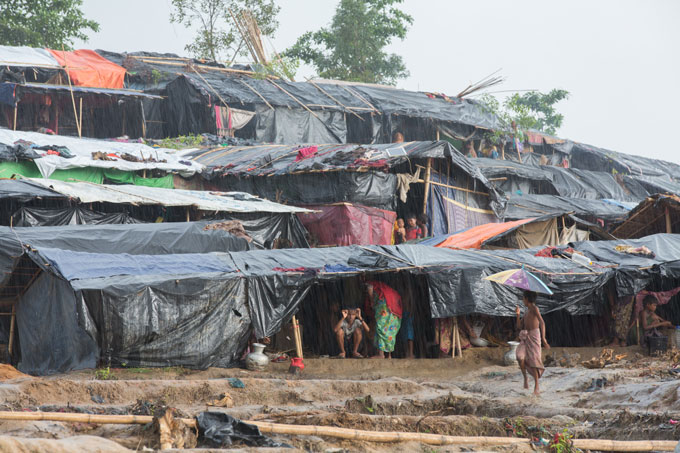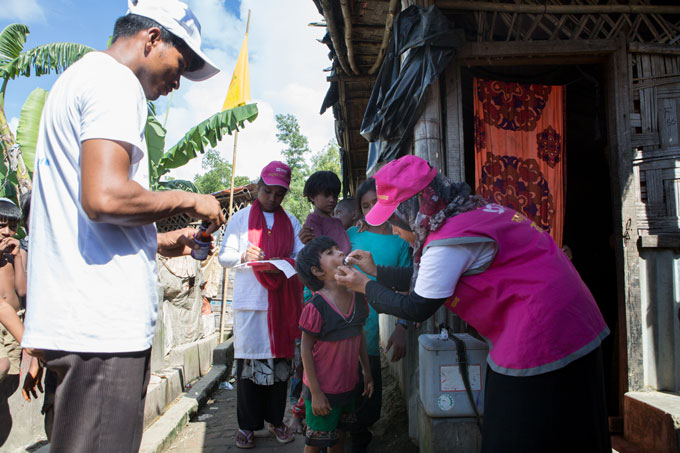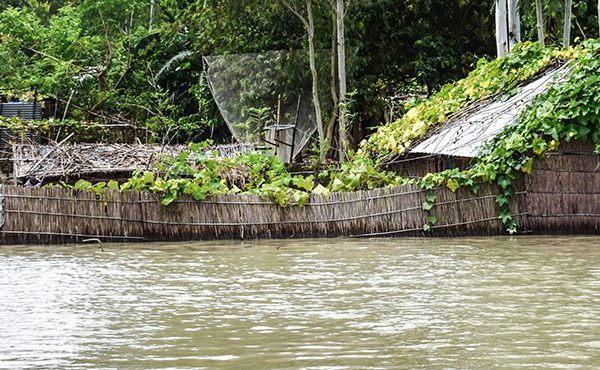Bangladesh completes world’s second largest cholera vaccination campaign
Reading Time: 2 minutes
Over 582,000 people from the Rakhine State of Myanmar have crossed into Bangladesh since August 25th. They are living in extremely cramped, extremely unhygienic conditions, and more people are arriving every day.
Over 582,000 people from the Rakhine State of Myanmar have crossed into Bangladesh since August 25th. They are living in extremely cramped, extremely unhygienic conditions, and more people are arriving every day.
The last six weeks have been a race against time. Over 10,000 cases of diarrhoea were identified in the week before the campaign started.
The movement of people from Myanmar into Bangladesh has been the fastest population movement in recent times. The vaccination campaign, in parallel, was the largest of its kind after Haiti in 2016.

The Ministry of Health, supported by a coalition of partners including BRAC, mobilised 900,000 vaccination doses and 200 mobile vaccination teams. Over 660,000 people were vaccinated over the course of one week. The 90 health workers that BRAC dedicated to the campaign directly contributed to the achievement of 25% of the target.
“Rolling out a campaign of this scale was only possible because of this large-scale collaboration and close coordination on the ground,” says Dr Kaosar Afsana, director of BRAC’s health programme.
BRAC has historically played a crucial role in fighting diarrhoeal diseases, and collaborations of such scale are not new for the organisation. Bangladesh, a river delta that connects 700 rivers and tributaries, experiences torrential rains every monsoon season that can extend for over six months. The region is said to be the birthplace of diarrhoeal diseases like cholera, which were once epidemics.
In the 1980s BRAC collaborated with icddr,b to devise a rigorously monitored process to teach mothers to make oral rehydration solution, a simple mixture, at home. More than 12 million Bangladeshi mothers were taught to make the solution, in a programme that saved millions of lives. BRAC also supported the government in the national immunisation programme during the 1980s, when immunisation coverage was 2%. The status rose to 70% during the next four years.

BRAC is the largest responder on the ground in Cox’s Bazar. The organisation is operating 50 mobile health camps, 10 fixed health clinics and mobilising an all-female cadre of over 120 health workers, supported by midwives, doctors and paramedics, every day. Detecting and controlling disease, particularly before it affects host communities, is a top priority.
“There is no proper surveillance system in place as of yet, but our extensive reach in primary healthcare is already presenting significant data from the ground. Our health camps are proving to be simple but extremely useful sources of real-time data,” says Dr Afsana.
The second phase of the oral vaccination drive is scheduled for early November, and aims to immunise 250,000 children of age 1-5. BRAC is prepared to scale and respond to the government’s call, as the organisation has done for the last 45 years.
Learn more about what you can do to support the humanitarian crisis in Bangladesh.
Sameeha Suraiya is a content strategist at BRAC Communications.





